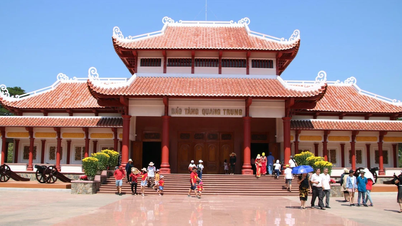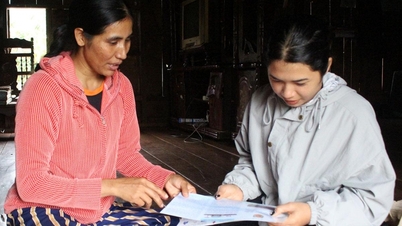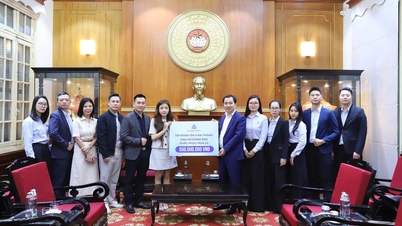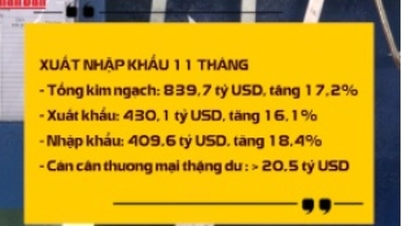In the process of amending the Personal Income Tax Law, the Ministry of Finance said it is considering applying one of two methods of calculating tax on real estate transfers, depending on the ability to determine specific information about the transaction.
Accordingly, if the taxpayer can prove the purchase price and related costs, personal income tax will be calculated on the basis of actual profit, i.e. the difference between the selling price and total costs, at a tax rate of 20%. Conversely, in case these factors cannot be determined, the tax rate will be calculated at 2% of the total transfer value.

The Ministry of Finance said it is considering applying one of two tax calculation methods to real estate transfer activities. Photo: Tan Thanh
Commenting on this proposal, Mr. Nguyen Van Duoc, General Director of Trong Tin Accounting and Tax Consulting Company Limited, said that the method of calculating tax based on actual profits is more reasonable and feasible. According to him, this approach ensures fairness, reflects the true nature of personal income tax, and is consistent with current legal regulations.
Mr. Duoc emphasized that taxpayers can completely provide invoices and documents to prove the costs incurred related to the transfer transaction, thereby helping the tax authority accurately calculate the taxable income.
To address the current shortcomings, Mr. Duoc proposed that it is necessary to soon build a national database on real estate transactions to ensure that the price stated in the contract is close to the market price. In addition, it is necessary to strengthen supervision and tighten the responsibility of organizations providing invoices and related documents, creating conditions for people to make costs transparent.
He also said that the current 2% tax on the total transfer value is unreasonable, because whether the seller makes a profit or a loss, they still have to pay the same tax, leading to inequality and the risk of budget loss.
From another perspective, lawyer Nguyen Duc Nghia, a member of the Ho Chi Minh City Tax Consultants and Agents Association, said that many countries in the world only collect personal income tax when the seller makes a profit from real estate transactions. However, in Vietnam, the lack of tools to determine the actual value of transactions as well as limitations in proving costs makes the 20% tax on profits not really suitable in the current context.
Lawyer Nghia suggested that the 2024 Land Law should be used as a basis for calculating a more reasonable tax base. In cases where the actual value cannot be determined, the land price list close to the market issued by the People's Committees of localities can be used. At the same time, the assets on the land - such as houses - need to be independently appraised to have an accurate tax basis.
According to him, this will be the appropriate direction to ensure transparency, fairness and feasibility in tax management practices.
Source: https://nld.com.vn/danh-thue-chuyen-nhuong-nha-dat-20-lieu-co-kha-thi-19625050712053733.htm




![[Photo] Urgently help people soon have a place to live and stabilize their lives](/_next/image?url=https%3A%2F%2Fvphoto.vietnam.vn%2Fthumb%2F1200x675%2Fvietnam%2Fresource%2FIMAGE%2F2025%2F12%2F09%2F1765248230297_c-jpg.webp&w=3840&q=75)



































































































Comment (0)